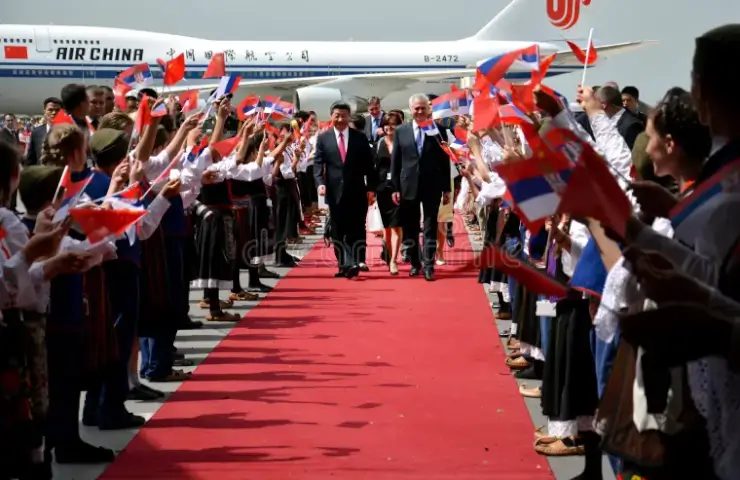People's Republic of China (PRC) President Xi Jinping praised his country's ties with Eastern Europe as a boon to the world's No. 2 economy during talks in Belgrade.
The Chinese leader vowed to deepen economic ties with the region for the benefit of global stability and development. Xi Jinping has called expanding trade with China inevitable, even as the European Union does everything to block Chinese investment.
China's cooperation with Central and Eastern European countries is "a sign of the times and the general trend of development," wrote Xi Jinping in the Hungarian ruling party newspaper Magyar Nemzet. The eastern part of the European region is "a useful addition to China-Europe relations," he added.
"We are completely open to Chinese investment," Serbian Deputy Prime Minister Sinisa Mali told state broadcaster RTS shortly before Xi's arrival Jinping. “China is one of the two largest powers in the world, and Xi is the most important statesman to come to Serbia in the last few years.”
In Serbia, Xi will seek to strengthen economic and political ties with a country that has opened its embrace for Chinese trade and investment. He will end his five-day trip with a stop in Hungary, where Prime Minister Viktor Orban appeared alone among EU leaders in terms of rapprochement with China.
Xi Jinping said after landing in Belgrade that Sino-Serbian cooperation “serves as fundamental and long-term interests of both countries." He added that he looked forward to talking with Vucic about relations between their countries “and other issues of mutual interest.”
Xi Jinping’s trip will highlight projects such as a new high-speed railway connecting Belgrade and Budapest. Chinese direct investment in Hungary and Serbia exceeds $15 billion and is growing, from car battery factories in Hungary to copper mining in Serbia.
Recall that Xi Jinping met with the Chairman on Monday European Commission Ursula von der Leyen, who told him the EU was prepared to use all available tools to protect its economy if China failed to offer fair access to its markets. It demonstrated the EU's position that heavily subsidized Chinese products such as electric cars and steel are flooding Europe.




